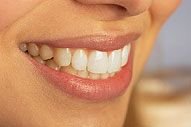 Overview
Overview
People choose esthetic dental procedures/surgery for various reasons—to repair a defect such as a malformed bite or crooked teeth, treat an injury, or just improve their overall appearance. Whatever the reason, the ultimate goal is to restore a beautiful smile.
For these and many other reasons, esthetic dentistry has become a vital and important part of the dental profession.
Common esthetic dental procedures can be performed to correct misshaped, discolored, chipped or missing teeth. They also can be used to change the overall shape of teeth—from teeth that are too long or short, have gaps, or simply need to be reshaped.
Some of the more common procedures involve:
- Bonding - A procedure in which tooth-colored material is used to close gaps or change tooth color.
- Contouring and reshaping - A procedure that straightens crooked, chipped, cracked or overlapping teeth.
- Veneers - A procedure in which ultra-thin coatings are placed over the front teeth. Veneers can change the color or shape of your teeth. For example, veneers have been used to correct unevenly spaced, crooked, chipped, oddly shaped or discolored teeth.
- Whitening and bleaching - As the term implies, whitening and bleaching, a rapidly increasing procedure, are used to make teeth whiter.
Which techniques should be used to improve your smile? A dental exam will take many factors into consideration, including your overall oral health.


